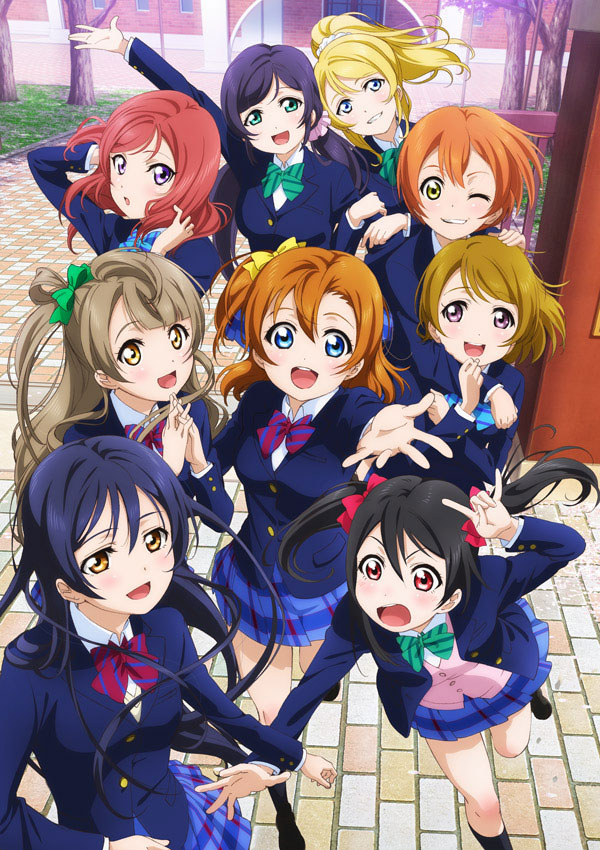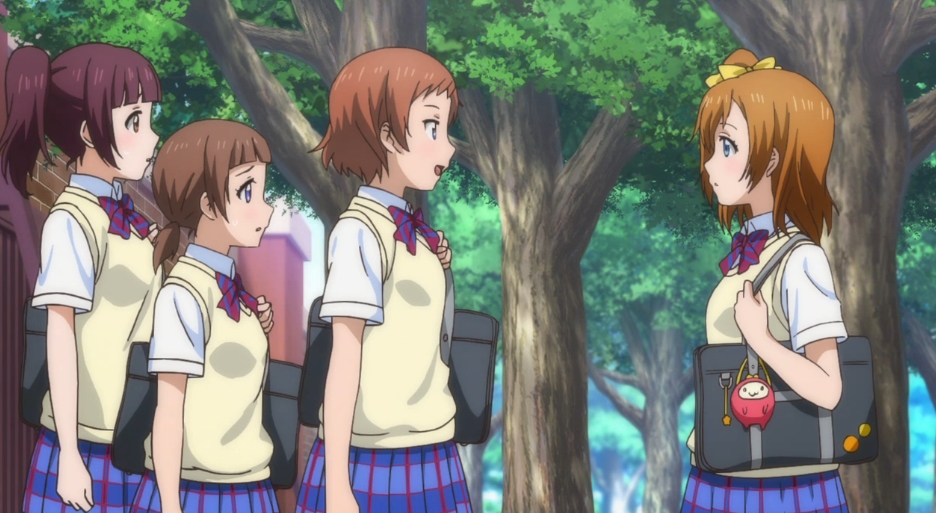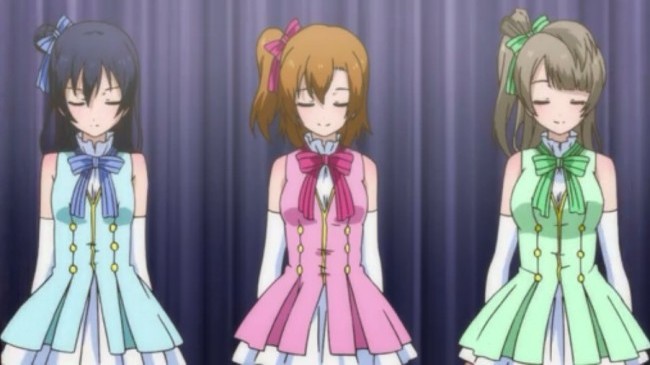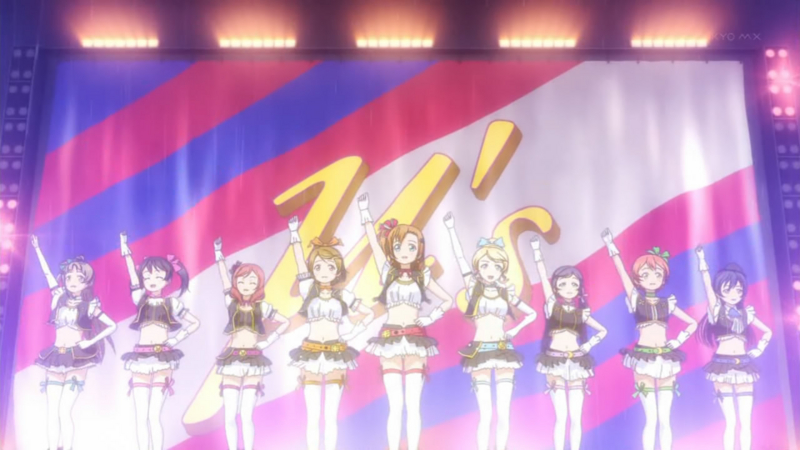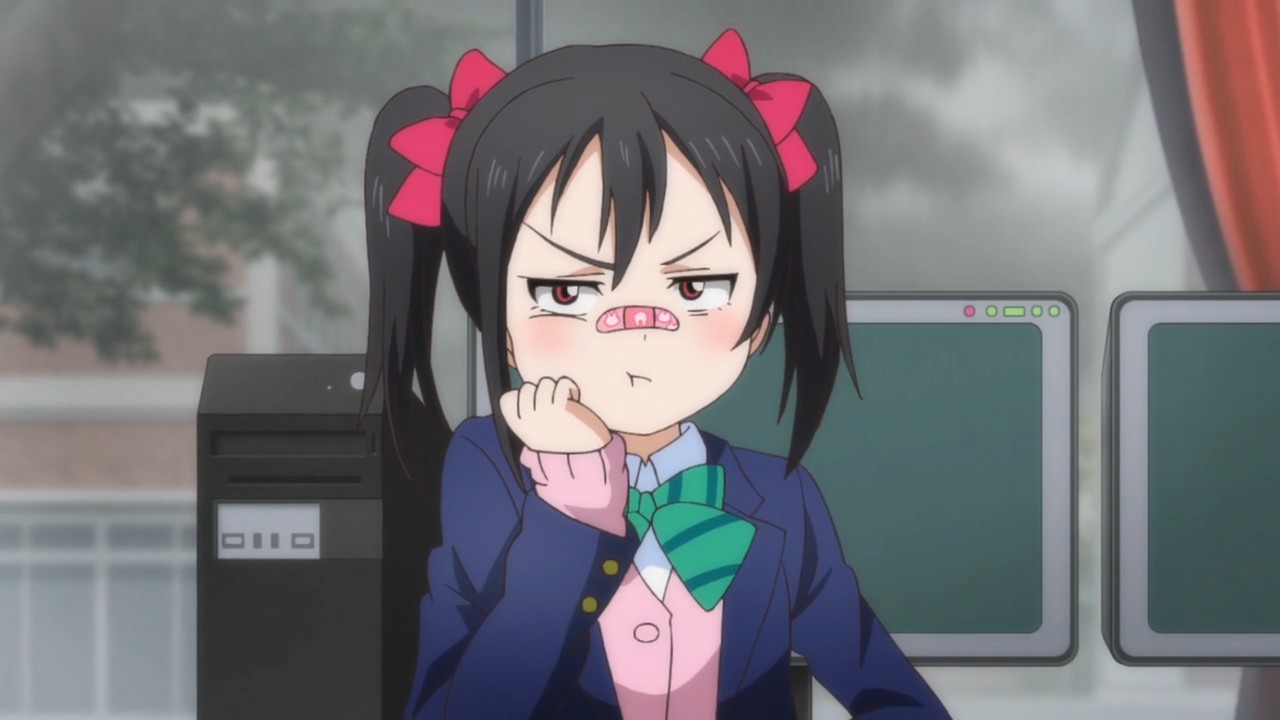ANIME REVIEW | Singing Loud & Proud in Season One of "Love Live!"
As listeners of my No Borders No Race podcast show can attest, my thoughts on the Japanese idol group scene can be a tad bit negative. Sure, there are some exceptions to the rule (i.e. Babymetal, Perfume, Ladybaby), but for the most part I have a hard time seeing past the way these singers are marketed and produced, as it sometimes feels like the label is selling the image of the artist rather than the music they create. An example of this comes in the form of the Love Live! franchise, which was brought to fruition thanks to a partnership between ASCII Media Works' Dengeki G's Magazine, record label Lantis, and animation studio Sunrise.
All three of these companies are considered big wigs in the Japanese entertainment realm. ASCII Media Works is responsible for the Dengeki Bunko light novel publisher (Toradora!, Spice & Wolf, Durarara!!, Sword Art Online); Lantis represents some of the biggest names in pop and rock in Japan (GRANRODEO, JAM Project, Minori Chihara, ALI PROJECT); and we don't really need to go into what Sunrise has contributed to the anime realm as they're practically a household name to any fan of the genre. So with the power that these three companies hold, could they bring to the scene a fictional idol group that's both musically charming and entertaining without sounding forced and clichéd? After watching the first season of Love Live! School idol project, I'm surprised to say that the answer is an overall yes!
**WARNING: MAY CONTAIN SPOILERS**
Season One of Love Live! School idol project focuses on the formation of the group μ's (pronounced "muses"). It all starts with an announcement regarding the closure of Otonokizaka Academy, to which second-year student Honoka is in complete shock over. Finding out that their school will be no more if they cannot gather enough future applicants Honoka and her friends Umi & Kotori begin to brainstorm possible ideas that'll help save the learning environment that they love so dearly. While investigating another school, Honoka discovers that its popularity is all thanks to A-Rise, a student-run pop idol trio. Putting two and two together, she and her friends decide to start their own idol group in the hopes that it'll save their school from being shut down.
Beginning as a trio, the friends work their tails off with songs written by the reluctant composer Maki with lyrics by Umi. After gaining permission to use the school auditorium and taking a mysterious suggestion of the group name, μ's holds their first show to a nearly-empty stage. Despite the setback the three friends decide to march on with their plan, not only gaining new members Maki, Rin, & Hayano in the process but also some small doses of respect from student council president Eli. μ's soon gets a dose of reality thanks to Idol Research Club president (and sole member) Nico, but quickly recapture their groove with her (somewhat silly) help and the support of a surprise online community.
Perhaps the thing that took me aback most about Love Live! was its means of showcasing the evolution of a group. Here we have three friends who started from scratch to help create a group that could save their beloved school, practicing their hearts out and getting that first song written. Seeing practically no one show up to their first gig -- save for a couple of people -- was the sort of reality check that you don't see often in these music-based anime series. There is no such thing as instant success, and Love Live! captured that realization perfectly; seeing the trio still sing & dance their hearts out was also refreshing, a sight I've seen happen at many small rock club shows where a band plays an arena-worthy performance to a crowd of maybe 10-20 people. It's the first speed bump that any artist faces, and it's good to see an anime do that instead of pushing the girls into automatic fame.
As someone who has never watched an idol anime series, I had a hard time trying to compare my experience with this series with something else. That's when it hit me, as I watched the now nine-membered μ's practice to their hearts' content, perform better song & dance routines as the season progressed, and their popularity start to rise. Love Live! School idol project shares a lot in common with the sports anime genre. Looking back-and-forth between μ's rise and, say, the Karasuno volleyball team in Haikyū, there is surprisingly a lot both series can relate to one another. Two different kinds of squads starting at the bottom, working their way towards the top, and continuously evolving into a better formation the more they practice. Honoka is to μ's as Hinata is to Karasuno, an analogy that fans of both shows can easily recognize as an undisputed fact.
The story is without a doubt well-told, but what about the music? While I'll say that this kind of pop music isn't my usual cup of tea, I have to admit that the songs "Start:Dash!!", "No Brand Girls," and "Susume→Tomorrow" were catchy, to the point where I found my head bopping to the beat of the adorable melodies that blared from my speakers. It isn't the kind of music that I'd be blaring through a car stereo, mind you, but rather the type that I'd plug into my headset when I need a dose of positivity shot into my brain. (After all, we all sometimes need a break from the Iggy Pops and Motörheads of the world to listen to some more cheery, fun, and fancy-free.)
While it should come as no surprise, Sunrise has made the Love Live! realm look at the more beautiful to behold. The schools, cityscapes, and even the people are filled with much character and detail, bringing a breath of life to just about every frame shown. Initially I was very cautious about the show's usage of CGI for the concert performances, but I was taken aback by how much they fit to the regular anime style. You could still obviously tell the difference between the work of a pencil & paper and the motion of a computer-created image, but the two styles managed to flow together perfectly.
The Japanese voice cast that makes up μ's fit well with their roles. Emi Nitta brings forth the pomp and circumstance as Honoka, whilst Aya Uchida and Suzuko Mimori played the roles of the supportive realists Kotori and Umi with a fine dose of enthusiasm. Yoshiko Nanjō's Eli keeps everyone at bay as the student council president, as she does her best to hide her true feelings for what she wants to do to save the school. As Eli's voice of reason Nozomi, Aina Kusuda has a warmth in her performance that ties everyone in μ's together, even when she gets a little grope-happy. Meanwhile Sora Tokui brings out the right amount of arrogance in her role as Nico, where her high-and-mightiness is more funny rather than annoying (especially when her plans blow up in her face).
As for the English dub it was nice to hear Bang Zoom! Entertainment decide upon vocal roles that matched with a character's personality rather than copying the Japanese seiyuu. Marieve Herington captures the can-do attitude well of Honoka, whereas Christina Vee brings an extra dose of cuteness as Kotori. Faye Mata gets her feline on as Rin with a nice dose of self-awareness, whereas Caitlin Glass's Maki knows how to turn up and down the character's more stuck-up attitudes. Erica Mendez simply kills it as Nico, jumping around between her bratty mannerisms and idol showboating. (Her "Nico-Nico-Ni!" chant is as spot on here as it is in Tokui's performance.) However I'm a little disappointed that there was zero effort put into dubbing the songs, as you'll just hear the original Japanese versions on the English language setting. Perhaps time was an issue, but nevertheless those who watch anime only in English will find it a bit jarring to hear the girls of μ's jump between the two languages.
With the series covering two discs, I was a little disappointed to see the lack of real extras. Found are the usual credit-less opening and closing themes, as well as the original TV spots that helped to promote the anime's original airing. Nowhere to be seen is the short OVA released after Season One came to an end, as well as any behind-the-scenes stuff. Hell, it would've been cool to even see some of the live μ's performances done by the voice cast, even if it were just a highlight reel. Sadly this release is kinda bare bones for those looking for something extra nice.
Despite this setback, there's no denying the fact that Love Live! School idol project is a must-watch anime for those in need of a good dose of cheering up. The characters -- while your typical high school fare -- are enjoyable, the music is surprisingly catchy, and the stories are fun to watch unfold. There's also no denying the talent behind what makes μ's work, be it the voice cast, songwriters, or even choreographers that helped to bring the CGI performances to life. So yes, the powerhouse trio of Sunrise, Lantis, and ASCII Media Works can create a fictional idol group and make them accessible to even those that may not be fans of that specific scene.
However, one question remains: has Love Live! changed my tune regarding the Japanese pop idol scene? Honestly: not quite, but let's see what Season Two can do to convince me to give this genre a chance...
Story:
Script:
Animation:
Voice actors/actresses: (Japanese dub) / (English dub)
Soundtrack/score:
Disc Extras:
Final Grade (not an average):
Season One review copy provided by Alan Costa of NIS America


